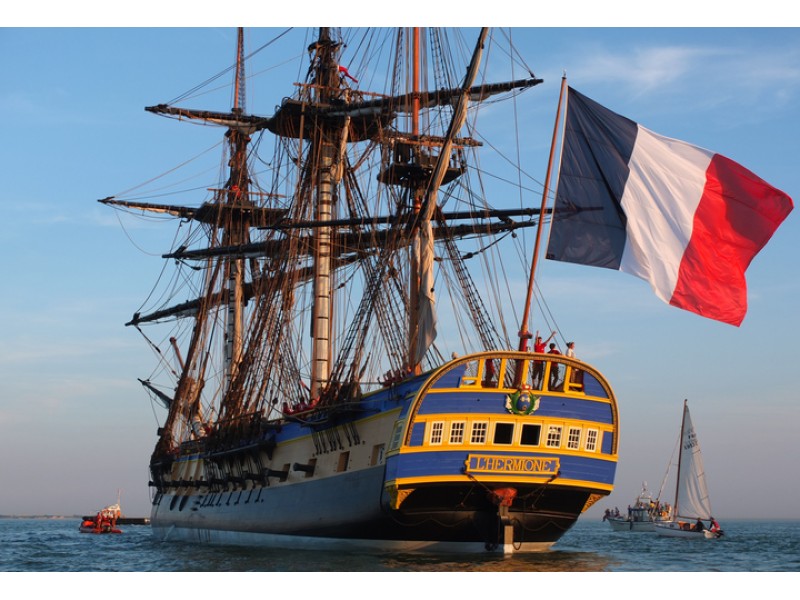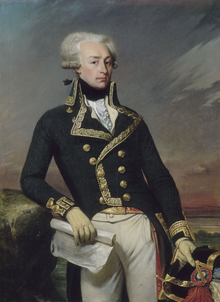 |
| "Yo! George! I gotcha the King's navy! Who's your boy, George? Who's your very best boy? Ha!" |
The Hermione is doing an Atlantic coast tour, so others will also see her.
After the war, alas, by 1824 when the Marquis de Lafayette was able to get to America again, much had happened including Lafayette's downfall by the French Revolution and the Terrorist era. Washington had long been moldering in the Washington family tomb. The older and younger men had been very dear friends and comrades. Lafayette was one of several worthy younger men, including Alexander Hamilton, with whom Washington developed strong surrogate father-son relationships.
 |
| The very young, handsome, charming, brave, loyal Marquis de Lafayette |
Later, when public opinion had turned against France, Washington brought Georges to the President's House in Philadelphia, and then to Mount Vernon.
The Lafayette issue was a very delicate diplomatic situation for the President to deal with, as Jefferson, and for a while the people of the new U.S. wanted to side with France, Washington and the Federalists did not want to -- distrusting the French Revolution and believing France was attempting to manipulate the young, weak United States into another war with England. During that period of enthusiastic Jacobin Clubs violence erupted in the colonies -- for and against France --, including Philadelphia, via the clandestine, anonymous help and encouragement of Jefferson, as part of his war on the Federalists including undermining Washington. (Ultimately this led to a breach between the two; Washington refused to have anything more to do with the man who betrayed him in so many ways, and continued to lie to his face about doing so.)
Fun Fact: the famous Freemason apron in which Washington was often painted, that he wore when dedicating the corner stone of Washington D.C. in a 100% Free Mason ritual, and in which he was buried, had been embroidered by Lafayette's wife, Marie Adrienne Françoise de Noailles, Marquise de La Fayette, as a gift to General Washington.
The Hermione will lead a flotilla around the Statue of Liberty (gift of France!) and then up the Hudson to where the Intrepid is anchored. It's supposed to go around Lady Liberty at 10:30 AM. I'd love to see this, but I'm sure the crowds will be so dense that I, with the bad back, who can't stand long, will not be able to view the spectacle, that, in reality, after all this time swimming in American History, means something very large to me.
-----------------------
* Lafayette and his family were attempting to leave Paris and France at the height of the Terror, get to England and from there to the young U.S. and buy a farm close to Mount Vernon. He was very fortunate to have been arrested outside of France, otherwise he and his family would surely have been executed as were other members of his family. As it was, he spent most of his five-year imprisonment in dreadful conditions and barely survived.



No comments:
Post a Comment